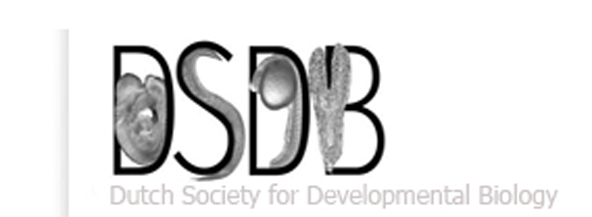The (re)birth of the DSDB
Posted by Emily Noël, on 1 February 2011
As the world of research into developmental biology becomes larger, and the arrival of online communities such as The Node allows us to bring that world a little closer to hand, the importance of using scientific communities to share expertise and experience only grows. Therefore, here in the Netherlands we are pleased to announce that a little over a week ago the Hubrecht Institute in Utrecht hosted the inaugural meeting of the recently reformed Dutch Society for Developmental Biology (DSDB).
Upon coming to the Netherlands as a postdoc over a year ago, I was a little surprised there was no active developmental biology society or community in place, particularly considering that research which was being conducted in the Netherlands in the early 1900’s was one of the early initiatives for the founding of the first Society for Developmental biology (more about the new society later, first it’s time for a brief trip through history…).
Born in 1853, Ambrosius Hubrecht (for whom the modern Hubrecht Institute is named) was Professor of Zoology at Utrecht University. He amassed a vast collection of embryological material, and his fascination for Darwin’s evolutionary theory led him into correspondence with Darwin himself. In 1911, Hubrecht founded the ‘Institut Internationale d’Embryologie’ (IIE), a selective society of embryologists who would meet and discuss aspects of comparative embryology. The home of the IIE, where meetings would take place, was Hubrecht’s private home in the centre of Utrecht.
A year after Hubrecht’s death in 1915, it was decided to establish the first Hubrecht Laboratory at Hubrecht’s house in Utrecht, and Daniel de Lange became the first director, leading the IIE, and continuing to organise small international meetings between 1930 and 1938. At this time, the IIE existed to serve the scientific needs of others, in the field of descriptive comparative embryology.
Concurrently, the field of experimental embryology was making great strides, and in 1968 the IIE renamed itself as the International Society of Developmental Biologists (ISDB), retaining its function as a discussion forum, and keeping its headquarters at the Hubrecht Laboratory
In Europe, and for some time, the functions of the ISDB were assumed in parallel by the European Developmental Biology Organisation (EDBO), grouping together the European national societies of Developmental Biology. At the time this included the Dutch NVOB (Netherlands Society for Developmental Biology). In 1997 the ISDB took over all EDBO functions, and became the world umbrella of national societies of developmental biology. At this point, the NVOB lost its momentum (but was never officially dissolved), while the ISDB has continued to increase its affiliated members, as the international development community continues to grow.
Therefore, the large community of developmental biologists we belong to came about in part through the activities of a similar society formed here in the Netherlands 100 years ago. It seemed a shame that a country with a rich history in developmental biology research and with much exciting research still taking place here, had lost its roots somewhat. After an initial meeting of interested scientists in the summer last year, the DSDB/NVOB has been reborn.
The first meeting was a 1 day event, with 15 speakers (mostly PI’s from within the Netherlands) covering topics including axis patterning, developmental clocks, cell migration, organogenesis, hematopoiesis, plant growth and flowering and small RNAs . The full program can be found on the DSDB website. Discussion afterwards yielded the conclusion that the day had been a great success, and that there is definitely the need and enthusiasm for the resurrection of such a community in the Netherlands.
This initial meeting served to familiarise all developmental groups in the Netherlands with the research topics that are the main point of focus in different labs. In future years I would like to see the expansion of the meeting, hopefully so that it can also provide a forum for younger scientists to showcase their own work. The mission statement of the society is to serve as a forum for developmental biologists in the Netherlands and, through the ISDB, throughout the world. It should facilitate the sharing of conceptual and technical expertise within our field, and allow us to share research output and stimulate discussions through yearly meetings. And of course, it will function as a national training network for young scientists. Certainly, as a young postdoc coming from a very interactive developmental biology community in England, my hope is that this society will grow and will once more flourish as a resource for developmental biologists in the Netherlands. There is a website (it’s running but still rather under construction) for the new society, which can be found at www.nedvob.nl
The committee members for the new DSDB are:
Secretary: Dies Meijer (ErasmusMC, Rotterdam)
Treasurer: Rik Korswagen, (Hubrecht Institute, Utrecht)
President: Jacqueline Deschamps (Hubrecht Institute and UMC, Utrecht)
(Meeting co-organisers – Ben Scheres, Jeroen Bakkers, Susana Lopes and Derk ten Berge)
Membership to the society is now open, and membership enquiries can be directed to Rik Korswagen.
Many thanks to the organisers for getting the society up and running again, and to the NWO for financial support in organising the first meeting. Also many thanks also to Jacqueline for a digested history of Dutch Dev Bio.



 (9 votes)
(9 votes)
Thanks Emily, and congratulations to the DSDB on reforming. I’ve added a link to the society in the sidebar as well.